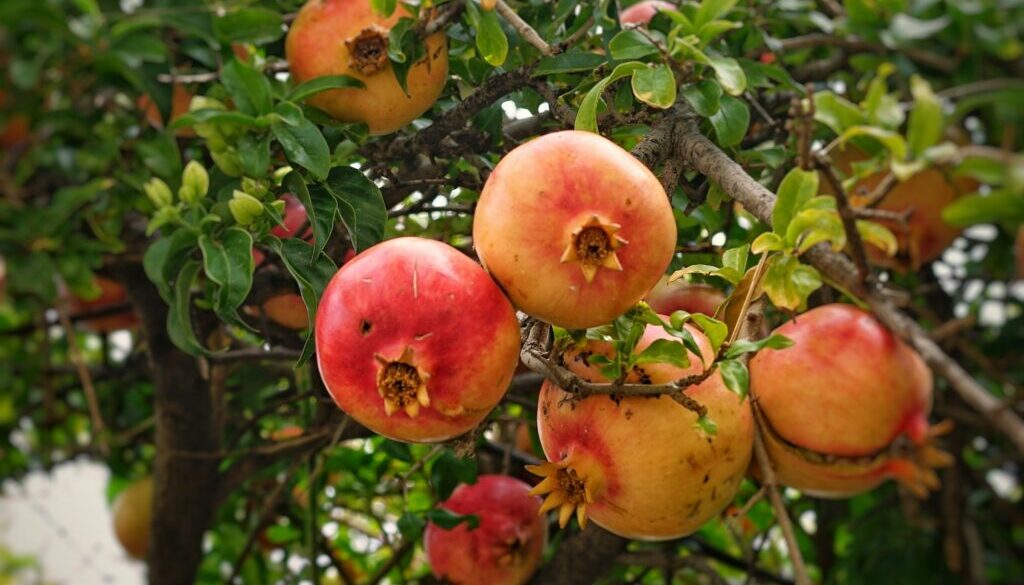“Sustainable” company behind POM juice among California’s top paraquat sprayers
The Wonderful Company, which has been recognized for its sustainability initiatives and owns POM pomegranate juice, Fiji Water, and other popular brands, was among California’s top sprayers of the toxic weedkiller paraquat in 2021, according to a new analysis.
The major agricultural company, which grows pistachios, almonds, and pomegranates, was California’s second largest sprayer of paraquat, which has been linked to Parkinson’s disease. Wonderful accounted for over 13% of the state’s paraquat use, applying almost 57,000 pounds to its fields, according to the analysis published Thursday by the Environmental Working Group (EWG), which drew from data obtained from the California Department of Pesticide Regulation and county agriculture commissioners.
The company’s website states that “environmental sustainability is at the center of our work” and that the company, “in all its operations, must be a deeply responsible steward of the environment, and lead by example to create a sustainable future.” Wonderful has invested $400 million in sustainable agriculture, according to its website.
The Wonderful Company did not respond to request for comment.
Just 10 farms and companies in the top agricultural state sprayed 40% of all paraquat used in California in 2021, the analysis found. The biggest paraquat user in the state was the JG Boswell Co., a major producer of cotton, tomatoes for paste, and seed crops, which also accounted for over 13% of California’s paraquat use that year.
“Folks have known about paraquat for a while… but I think it’s clear the public doesn’t fully appreciate where these pesticides are being applied and how close it is to their communities,” said Geoff Horsfield, a policy director at the Environmental Working Group who works on pesticides and other agricultural issues.
Many countries initially banned paraquat because it is incredibly lethal when ingested even in tiny amounts, said Horsfield, noting that the herbicide was widely used as a method of suicide in South Korea and other countries. But the primary way people are exposed to paraquat is by inhaling it, he said. Both farmworkers and community members whose homes border farm fields are at risk from paraquat exposure.
“If you live near an almond grove, a vineyard or a cotton field, we know that especially now, given drought and weather changes, pesticide drift can be a real threat,” said Horsfield.
Latinos living in low-income California communities are disproportionately exposed to the toxic weedkiller, according to another recent EWG analysis.
The analysis of California’s top paraquat sprayers comes on the heels of a bill recently introduced in the California State Assembly that, if passed, would ban paraquat in that state beginning in 2026. While over 60 countries have banned paraquat, it was reapproved by the US Environmental Protection Agency (EPA) in 2021. A recent draft report suggests the agency continues to conclude that the controversial herbicide is safe despite dozens of peer-reviewed studies linking it to Parkinson’s disease.
In October 2022, The New Lede, in collaboration with The Guardian, revealed internal documents from the agricultural company Syngenta that exposed years of corporate efforts to cover up evidence that paraquat can cause Parkinson’s disease, as well as evidence of efforts to influence the EPA and published scientific literature.
There are plenty of alternatives to paraquat, noted Horsfield. While the weedkiller is used on some California vineyards, for example, it is banned in France and Italy – both famous for their wines.
“We know these products can be successfully grown in California without the use of [paraquat],” said Horsfield.
(Featured image by Robert Anasch on Unsplash.)
 EWG
EWG


